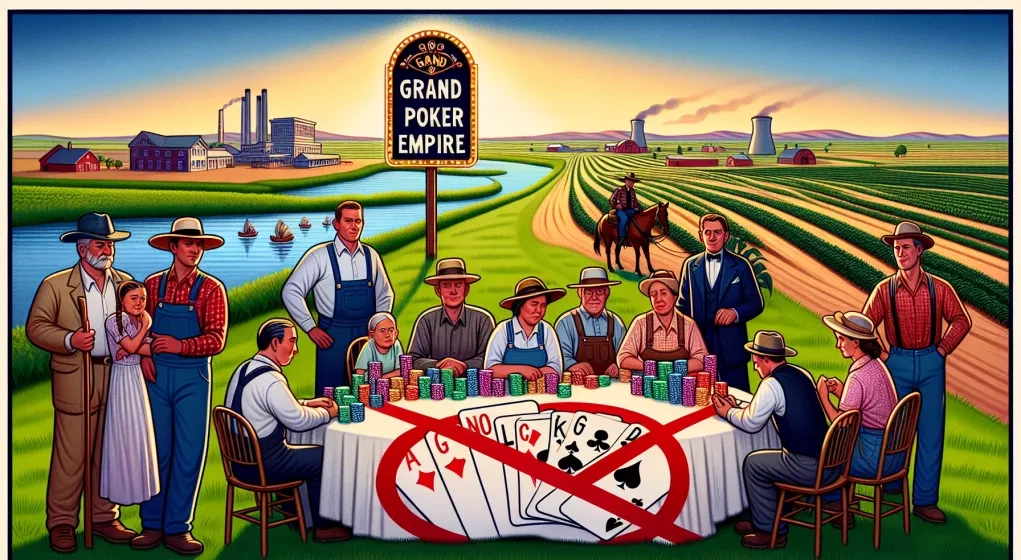In the quaint Dallas suburb of Farmers Branch, the dreams of a grand poker empire have been put on indefinite hold. Despite the tantalizing proposition of Texas’ mightiest poker room, the city council, in a decisive 4-1 vote, squashed the ordinance that would have allowed cardrooms to flourish, effectively folding the hand before cards could hit the felt.
At the heart of the thwarted ambition was none other than Doug Polk, a revered figure in the poker world, acclaimed for earning three illustrious World Series of Poker bracelets. Polk’s vision was to erect an impressive 47,000-square-foot cardroom, a temple for the craft, complete with a convivial bar, a welcoming restaurant, and a staggering array of 100 poker tables poised to host a congregation of card enthusiasts.
The proposed beacon of gaming was not only poised to become a centerpiece of the area but also a considerable economic boon. Polk’s establishment promised employment for around 300 individuals and was projected to draw an estimated 300,000 visitors yearly through its doors. Its location was prime: a mere twenty-minute excursion from the bustling Dallas International Airport.
Despite the setback, a disheartened but unbroken Polk expressed his gratitude to his band of supporters in the aftermath of the council’s verdict. “It obviously wasn’t the result we were looking for,” Polk reflected to The Dallas Morning News, acknowledging the existence of a hidden majority who favored his foray into expanding Texas’ poker presence.
The battle over poker’s legitimacy in Texas bears the mark of an old western standoff, a contest steeped in legal gray areas and moral quandaries. Polk, no stranger to high stakes play, already captains the largest card room in the Lone Star State—the Lodge Card Club in Round Rock. His eye remains fixated on establishing yet another frontier in what he calls a “premium market.”
But Polk’s wager in the world of Texas poker is fraught with uncertainty. Will the saloons of chance hold their ground, or will the gavel of justice demand their closure? Poker clubs, as they stand, cling to a lifeline—a loophole rooted in their identity as private clubs. In Texas, where gambling is a pursuit shielded behind stringent legal barriers, these establishments veer away from traditional “rake” practices, instead opting to charge patrons hourly for the privilege of play.
Critics, however, aren’t buying the clubs’ interpretation of the law; they contend the loophole was never meant to facilitate commercial operations, but rather to preserve the sanctity of private, home-held games.
Ironically, the nearby City of Dallas once opened its metaphorical gates to poker in 2019, only to execute an about-turn. A pioneering cardroom, the Texas Card House, found its license revoked under the scrutinizing eye of City Attorney Chris Caso, initiating a tangled web of legal proceedings that, while unresolved, have allowed the cardroom to continue operating—somewhat in limbo, pending a potentially landmark judgment by the Texas Supreme Court.
The eventual ruling could very well set the precedent for the fate of poker rooms throughout the state, untangling—or perhaps knotting further—the uncertain future of Texas’ simmering poker scene.
As the dust settles on the latest chapter of Farmers Branch’s dalliance with high-stakes gaming culture, one thing is certain: the playing cards of legality and entrepreneurship continue to be shuffled, with the final hand yet to be dealt.






